

Antoine Dodson. Kevin Antoine Dodson (born June 27, 1986)[1] is an American Internet celebrity, singer, and actor.
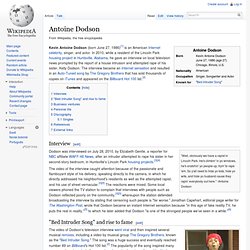
In 2010, while a resident of the Lincoln Park housing project in Huntsville, Alabama, he gave an interview on local television news prompted by the report of a house intrusion and attempted rape of his sister, Kelly Dodson. The interview became an Internet sensation and resulted in an Auto-Tuned song by The Gregory Brothers that has sold thousands of copies on iTunes and appeared on the Billboard Hot 100 list.[2] Interview[edit] "Well, obviously we have a rapist in Lincoln Park. Grineflip: så galt kan det gå med autokorrekturen i iPhone - TV 2 Beep. The “Habsburg Jaw” This information comes from material submitted by member John Siple Of the many attributes identified with the Habsburg dynasty it is the hereditary over-grown jaw (mandibular prognathism) that captures the most attention.It is clearly visible in many of the increasing natural portraits of the family from the Renaissance and after, and also is seen on coinage of the period.
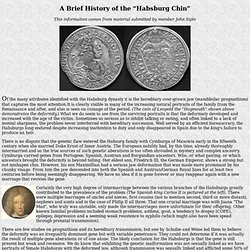
(The coin of Leopold the “Hogmouth” shown above demonstrates the deformity.) What we do seem to see from the surviving portraits is that the deformaty developed and increased with the age of the victim. Sometimes so serious as to inhibit talking or eating, and often linked to a lack of mental sharpness, the problem never interferred with hereditary succession. Well served by an efficient bureaucracy, the Habsburgs long endured despite increasing inattention to duty and only disappeared in Spain due to the king's failure to produce an heir.
J Med Genet. 1988 Dec; 25(12): 838-42. Kathoey. Kathoey or katoey (Thai: กะเทย; RTGS: Kathoei [kàtʰɤːj]) is a Thai term that refers to either a transgender woman or an effeminate gay male in Thailand.
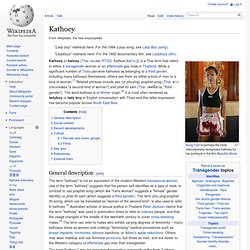
While a significant number of Thais perceive kathoeys as belonging to a third gender, including many kathoeys themselves, others see them as either a kind of man or a kind of woman.[1] Related phrases include sao (or phuying) praphet song (Thai: สาวประเภทสอง,"a second kind of woman") and phet thi sam (Thai: เพศที่สาม, "third gender").
The word kathoey is of Khmer origin.[2] It is most often rendered as ladyboy or lady boy in English conversation with Thais and this latter expression has become popular across South East Asia. General description[edit] Tore Janson: ”Språkens historia. En upptäcktsresa i tid och rum” Ingen läskunnig människa ska behöva ha tråkigt.
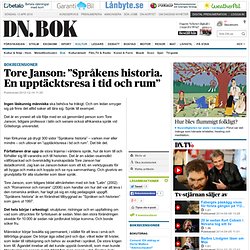
Och om ledan smyger sig på finns det alltid saker att lära sig. Språk till exempel. Det är en ynnest att slå följe med en så genomlärd person som Tore Janson, tidigare professor i latin och senare också afrikanska språk vid Göteborgs universitet. The White Bull. Summary[edit] Chapter 1[edit] How the Princess Amasida met a bull The story takes place in Ancient Egypt where Princess Amasidia, daughter to King Amasis, is walking along the Pelusium Way in the company of Old Mambres, who the king appointed to be in charge of her household.
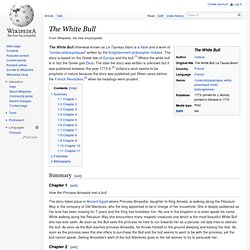
She is deeply saddened as her love has been missing for 7 years and the King has forbidden him. Wild man. Wild men support coats of arms in the side panels of a portrait by Albrecht Dürer, 1499 (Alte Pinakothek, Munich) Terminology[edit] The first element of woodwose is usually explained as from wudu "wood", "forest".
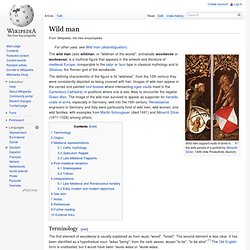
The second element is less clear. It has been identified as a hypothetical noun *wāsa "being", from the verb wesan, wosan "to be", "to be alive".[1] The Old English form is unattested, but it would have been *wudu-wāsa or *wude-wāsa. Late 15th century tapestry from Basel, showing a woodwose being tamed by a virtuous lady. Falstaff. Sir John Falstaff is a fictional character who appears in three plays by William Shakespeare, as well as in operas by Giuseppe Verdi and Otto Nicolai.
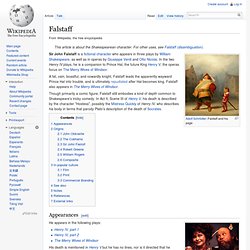
In the two Henry IV plays, he is a companion to Prince Hal, the future King Henry V; the operas focus on The Merry Wives of Windsor. A fat, vain, boastful, and cowardly knight, Falstaff leads the apparently wayward Prince Hal into trouble, and is ultimately repudiated after Hal becomes king. Dorisk ordning. Dorisk ordning är en kolonnordning med två huvudtyper: den grekisk-doriska och den romersk-doriska.
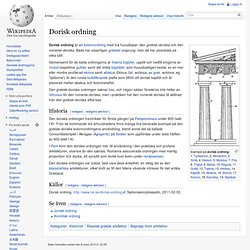
Båda har visserligen grekiskt ursprung, men de har utvecklats på olika sätt. Gemensamt för de båda ordningarna är frisens triglyfer, upptill och nedtill omgivna av mutuli respektive guttae, samt det enkla kapitälet, som huvudsakligen består av en mer eller mindre profilerad ekinus samt abakus. Torus. En torus.
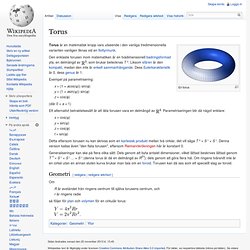
Ord - Ordspråk i Sveriges största samling ordspråk! Coitus reservatus. Coitus reservatus (coitus, "sexual intercourse, union" + reservatus, "reserved, saved"),[1] also known as sexual continence, is a form of sexual intercourse in which the penetrative partner does not attempt to ejaculate within the receptive partner, but instead attempts to remain at the plateau phase of intercourse for as long as possible avoiding the seminal emission.
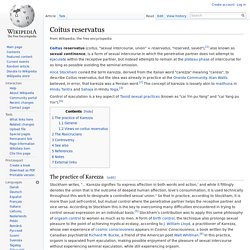
Alice Stockham coined the term karezza, derived from the Italian word "carezza" meaning "caress", to describe Coitus reservatus, but the idea was already in practice at the Oneida Community. Alan Watts believed, in error, that karezza was a Persian word.[2] The concept of karezza is loosely akin to maithuna in Hindu Tantra and Sahaja in Hindu Yoga.[3] Control of ejaculation is a key aspect of Taoist sexual practices (known as "cai Yin pu Yang" and "cai Yang pu Yin").[4] The practice of Karezza[edit] Stockham writes, "... General[edit] In flagrante delicto. Arkaism. En arkaism är användningen av ett ålderdomligt uttryck[1] som har bevarats i språket.[2] Det används oftast för att ge en text eller ett yttrande en ålderdomlig känsla. Två genrer där arkaiserade uttryck är vanliga är lagar och poesi.
Det är språkliga drag som bevarats från äldre språkformer i en eller flera dialekter, men försvunnit eller förändrats i andra.